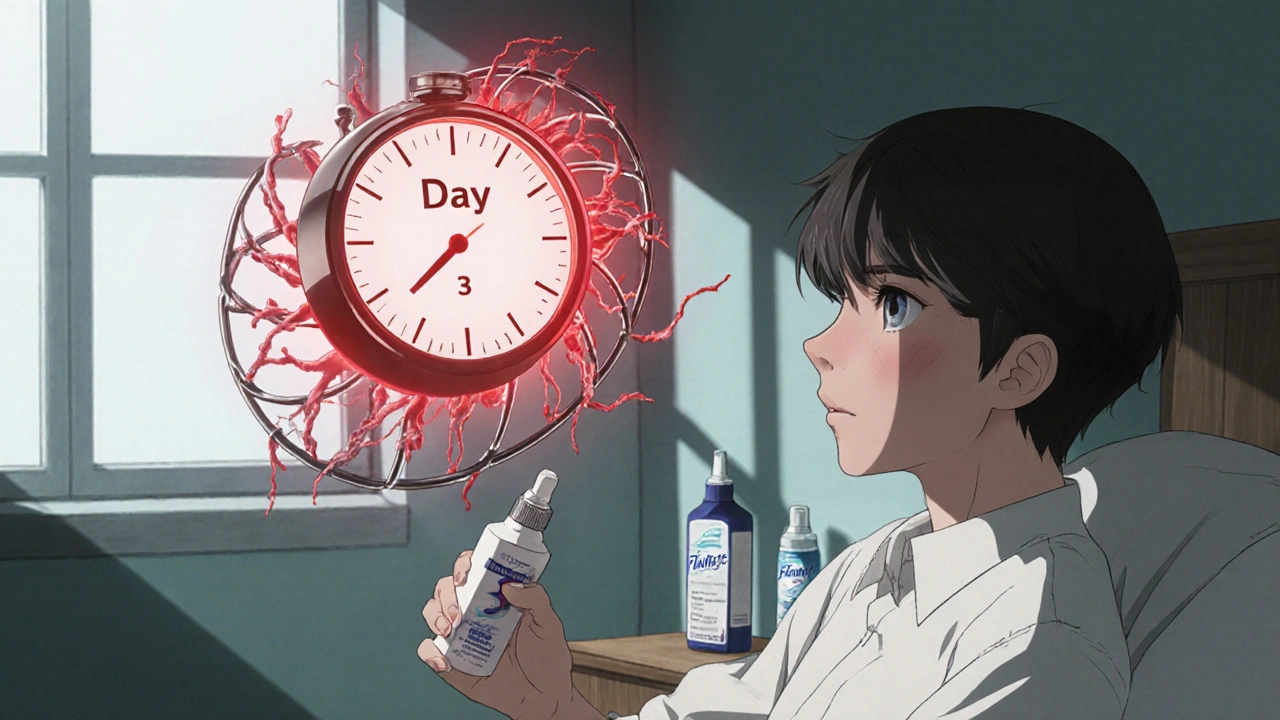Rebound Congestion: What It Is, Why It Happens, and How to Stop It
When you use a nasal decongestant spray too long, your nose doesn’t just go back to normal—it gets rebound congestion. This isn’t just a mild annoyance. It’s a condition called rhinitis medicamentosa, a type of nasal inflammation caused by overuse of topical decongestants. You start with a stuffy nose, use a spray like oxymetazoline or phenylephrine for relief, feel better for a few hours, then wake up more blocked than before. Soon, you’re spraying more often, then twice a day, then every few hours. It’s a trap. And the more you use it, the worse it gets.
This isn’t just about nasal sprays. It’s about how your body reacts when you trick it into thinking it needs chemical help to breathe. The blood vessels in your nose swell up even more after the drug wears off, because they’ve lost their natural ability to tighten and relax. nasal decongestants, medications that shrink swollen blood vessels in the nasal passages work great for three days. After that, they start working against you. You might think you’re treating a cold or allergies, but you’re actually creating a dependency. And the worst part? Most people don’t realize what’s happening until they’re stuck.
Rebound congestion doesn’t care if you’re young or old, healthy or sick. It happens to people using OTC sprays for seasonal allergies, chronic sinus pressure, or even just a stuffy nose from a cold. It’s common enough that doctors see it all the time—but it’s rarely talked about outside medical offices. You won’t find warnings on the bottle that say, "This will make your nose worse if you use it too long." But it’s true. And if you’ve been using a spray for more than a week, you’re likely already in the cycle.
Breaking free isn’t easy, but it’s doable. Stopping cold turkey is the fastest way, but it’s rough. You’ll be congested for days. Some people switch to saline rinses, steroid sprays, or even humidifiers to ease the transition. Others work with a doctor to taper off slowly. The key is understanding that the spray isn’t fixing your nose—it’s masking the problem while making it deeper.
What you’ll find below are real, practical stories and science-backed fixes from people who’ve been there. You’ll learn how nasal spray overuse, the pattern of increasing frequency and dependence on decongestant sprays leads to long-term damage, how to spot the early signs, and what alternatives actually work. Some posts show how people switched to non-chemical solutions. Others detail the timeline of withdrawal. One even walks through how to wean off without going back to the spray. These aren’t theoretical. These are real cases, with real results.
OTC Nasal Sprays: How to Avoid Rebound Congestion and Use Them Safely
Learn how to safely use OTC nasal sprays without triggering rebound congestion. Discover the 3-day rule, safer alternatives like saline and steroid sprays, and how to break the cycle if you're already stuck.

